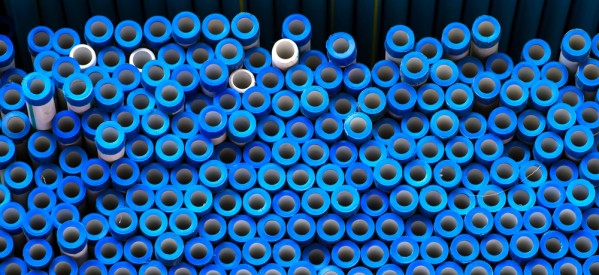Chinese Plastic Pipe Makers Under Pressure to Boost Quality

Improving the quality of plastic pipe in China has become a focus for several major customer groups of the industry, including municipal water systems and natural gas utilities who buy pipe. The China Urban Water and Wastewater Association, for example, hopes this year to roll out a qualification system with a recommended list of suppliers, driven by concerns about pipe failures and leaks hurting city water systems.
Wang Lan, vice secretary general of the Beijing-based association, told an audience of several hundred plastic pipe makers at an industry conference in early June that the group wants to form long-term relationships with those selected suppliers. Poor manufacturing and poor installation practices sometimes means that pipe that should last 30 years will only last 15 years, she said.
As well, speakers from other infrastructure groups that are heavy users of plastic pipe raised similar concerns at the conference, organized by the China Plastics Piping Association, June 6-7 in Chengdu.
A speaker from the China Urban Natural Gas Association said, for example, that they’re concerned about quality problems and would like to work with CPPA companies and third-party testing labs to improve monitoring.
A representative of the China Water Conservation and Water Supply Institute urged the industry to pay attention to quality in raw materials and pipe production. And an official from the Tianjin City Construction Materials Association said in prepared remarks that the group wants stronger monitoring of quality. Tianjin, one of China’s largest cities, has set up a testing institute to monitor the quality of many construction materials, including plastic pipe, TCCMA said.
But the details on how exactly those groups would accomplish that, and how they would move the debate into concrete action, were not always clear. In an interview after her speech, Wang said her group hopes to rely on the Beijing-based China Plastics Piping Association to develop a list of suppliers and then do some testing of their products. She said she believes that CPPA members meet quality standards but the industry has many smaller companies that may not. She said it’s a particular concern as China puts more focus on developing its Western regions.
“We will be focusing our work nowadays on the West region of China,” she said. “In the West, a lot of local manufacturers have problems with technology and poor quality.”
She identified three reasons for pipes failing: poor quality raw material, improper pipe manufacturing and poor installation in the field. She said the group also plans to focus on quality issues with reinforced concrete pipe. The plastic pipe industry has been working with customer groups to address quality concerns, said Wang Zhan Jie, secretary general of the Beijing-based CPPA.
He said that generally speaking, bigger companies have good quality and smaller pipe makers have more problems. He said raw material quality is a significant problem, and that some companies substitute cheaper materials in the manufacturing process.
Wang said CPPA is working on new regulations for pipes, and regularly holds meeting with customer groups to try to address concerns and invites them to speak at its events, like the Chengdu conference. One challenge, he said, is that groups that purchase pipes, like utilities, are not always knowledgeable about how to determine if a pipe is good quality. He said CPPA is working to educate those groups so that quality becomes a bigger part of their purchasing decisions. It’s a point echoed by others involved in China’s pipe market.
“Most of the government knows the quality is not good but they don’t know how to do the quality control,” said Zhao Qihui, Beijing-based technical services manager with French chemical company Total, which sells higher grade polyethylene to the Chinese natural gas pipe market.
An executive from pipe maker Foshan Rifeng Enterprises Co. Ltd. agreed that the pipe industry is under more pressure from customer groups to improve quality, and needs to work more closely with them.
Li Baiqian, vice general manager of the Foshan, Guangdong-based company, said part of the purpose of the CPPA conference was to gather big and small companies together and emphasize that the market trend is toward higher quality. To some extent, the problems should be expected given that it’s only been a little more than 30 years since China began opening its economy, he said.
“It’s not really enough time to make good regulations and rules to control the market,” he said.






